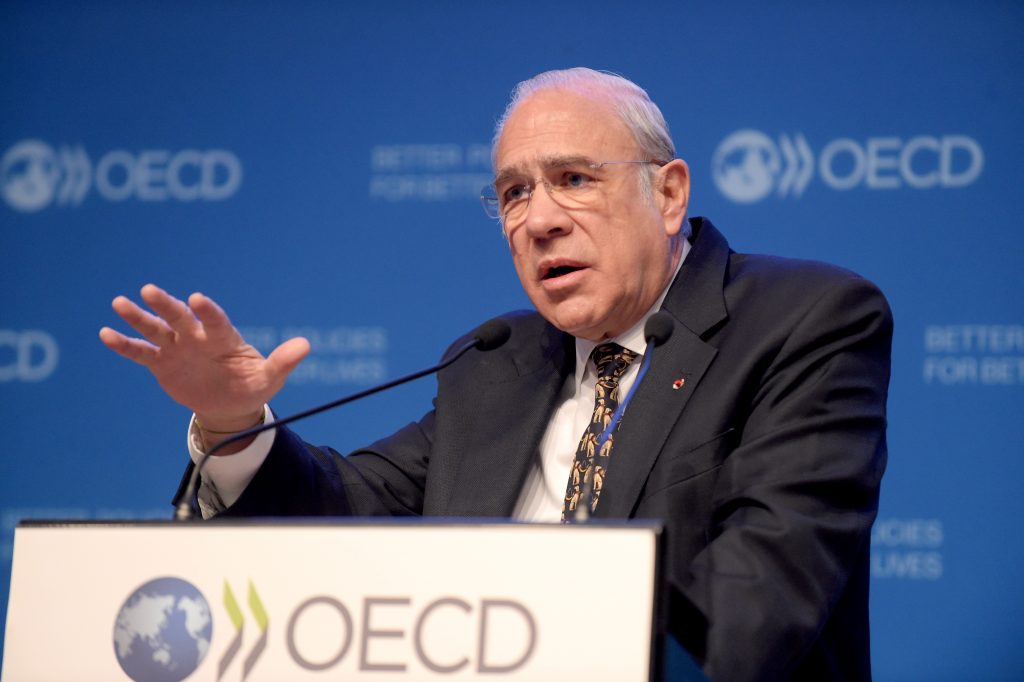São Paulo – The Organisation for Economic Co-operation and Development (OECD) cut its forecast for Brazil’s Gross Domestic Product (GDP) in 2018 and 2019, according to the report Economic Outlook, released this Wednesday (21). In comparison to the previous forecast from May, the current estimate went down from 2% to 1.2% this year, and from 2.8% to 2.1% next year. In comparison to a report from September 2017, the forecast for 2018 remained at 1.2% and dropped from 2.5% to 2.1% for 2019.
Even with the cut, the organization states that the pace of growth of Brazil’s economy tends to pick up in 2019 and 2020. The 2020 forecast indicates a 2.4% growth. The analysis was based on expectations of improvement in the labor market and in household consumption.
However, OECD warns that uncertainties over structural reforms remains significant and that this could hinder the recovery. Without a major public expenditure reduction, the sustainability of the fiscal account will remain at risk, especially due to rising pension spending, says the organization.
“Building a political consensus for a pension reform will be an important challenge for the incoming administration [which takes office on January 1, 2019],” states the report. “Maintaining strong growth will require further efforts to strengthen productivity, including closer integration into the global economy,” it adds.
OECD advises for the control of expenditures, especially social security costs, and the transfer of resources to social programs. The reports stresses that to raise participation thresholds in the conditional cash transfer programme Bolsa Família – “which costs only 0.5% of GDP” –, in addition to secure a minimum income to the most needy, it would reduce inequality in respect to education and healthcare. To receive the benefits, vulnerable households need to keep their children in school and take them to public health clinics for vaccines and nutritious and development follow-ups.
The organization also advises for efforts to reduce tax expenditures and credit subsidies for the private sector, plus a closer integration into the global economy and reducing domestic barriers to entry. “Closer integration into the global economy would raise efficiency by exposing more firms to foreign competition and improving access to lower cost intermediate and capital goods,” states the report.
Among the risks for growth in Brazil are “the fragmented political landscape”, which makes it difficult to create a political consensus for key reforms, the deterioration of the economic situation in Argentina – the country’s third largest trade partner – and the rising of trade tensions between the United States and China – Brazil’s two major trading partners.
World
Overall, OECD states that the growth of the global economy remains strong, but that it recently passed its peak and now faces risks such as the trade war and fiscal adjustments in different countries. The organization expects the world’s GDP to grow 3.5% in 2019. The previous forecast, released in May, indicated a 3.9% growth.
“Trade conflicts and political uncertainty are adding to the difficulties governments face in ensuring that economic growth remains strong, sustainable and inclusive,” said OECD Secretary General Angel Gurría (picture above), according to a statement by the organization.
Among the factors weighing in the cut of the forecast for the global GDP are worse outlooks for emerging countries such as Turkey, Argentina and Brazil.
Translated by Sérgio Kakitani




